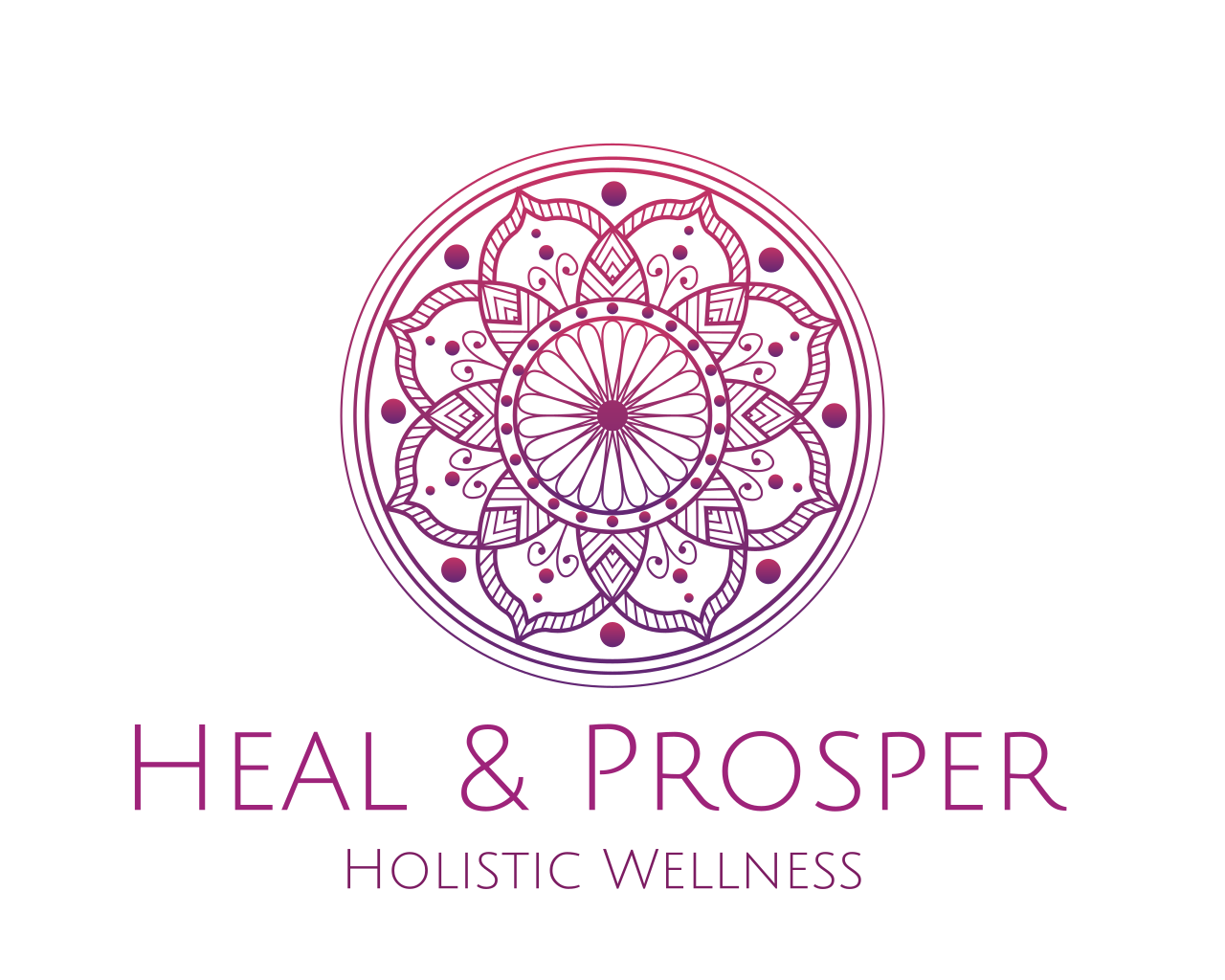Our services are currently being offered at a special promotion of a 20% discount on the final price valid only, from September 1 to September 31. Use code HPAC10 at checkout to claim!
BLOG

What is Holistic Medicine
Alternative Therapies for Holistic Healing
By Heal & Prosper
September 20, 2023

Introduction:
When you hear "holistic health," do you think of alternative medicine, naturopathy, acupuncture, or other Eastern-inspired health trends? While holistic health may encompass aspects of alternative medicine, naturopathy, acupuncture, and other Eastern-inspired health trends, it goes beyond these specific practices.
When we hear "holistic health," we think of an approach to health and wellness that considers the whole person—mind, body, and spirit—in the context of their environment. This holistic health approach to healthcare combines both alternative medicine and conventional medicine to treat the whole person and not just the symptoms.
Treating the Whole You
Holistic health or holistic healing is often defined as a form of integrative health care that looks at the whole person: body, mind, and spirit. This kind of holistic healing often involves integrative medicine and holistic health practices that can overlap with modern-day Western medicine.
Holistic health emphasizes the interconnectedness of various aspects of a person's life, recognizing that physical health is influenced by mental, emotional, and spiritual well-being, as well as external factors like diet, exercise, and environmental conditions.
Take stress, for example. It is a psychological response, yet it can cause physical symptoms, including headaches, sleep troubles, weight gain, and muscle pain. In the mental arena, feeling ill can cause you to feel anxious or depressed. Furthermore, your spirituality and relationships can directly impact your mental and physical health.
By understanding this, holistic doctors don't just ask about your symptoms. They ask about your overall health and your lifestyle in order to make personalized recommendations to improve your wellness.
What is Holistic Medicine?
Holistic medicine is a form of healing that involves a person's mind, body, spirit, and emotions in their journey to optimal health and wellness. Optimal health and wellness, within the context of holistic medicine, represents a state of well-being that extends beyond the mere absence of disease or physical symptoms.
It encompasses a multifaceted and harmonious state of being where a person's mind, body, spirit, and emotions are in balance and alignment. Holistic medicine practitioners believe that people are made up of interdependent components to their health, and that imbalances, whether physical, mental, emotional, or spiritual, negatively impact their overall health.
Optimal health and wellness are about feeling at ease and experiencing a profound sense of peace within oneself and the world around.
Here are some key aspects of optimal health and wellness within the holistic medicine framework:
1. Physical Health
In holistic medicine, physical health involves not only the absence of illness but also the presence of vitality and energy. It's about maintaining a strong and resilient body through a balanced diet, regular exercise, sufficient rest, and proactive healthcare measures such as screenings and check-ups. Holistic medicine combines both alternative medicine and conventional medicine to provide healing. Optimal physical health allows individuals to engage in daily activities with ease and enjoy a high quality of life.
2. Mental Health
Mental health is a crucial component of optimal wellness. It includes factors like cognitive function, emotional resilience, and psychological well-being. Holistic approaches often emphasize practices such as mindfulness, meditation, and cognitive-behavioral techniques to promote mental clarity, reduce stress, and foster emotional balance. Starting or introducing a sense of calm to your day has tremendous benefits to your overall well-being.
3. Spiritual Well-being
Holistic medicine recognizes that spirituality plays a significant role in overall health. This doesn't necessarily refer to organized religion but rather a sense of purpose, connection to something greater than oneself, and inner peace with the ups and downs of life. Achieving spiritual well-being can involve practices like meditation, contemplation, and exploring one's values and beliefs.
4. Emotional Balance
Emotional wellness entails understanding, accepting, and effectively managing one's emotions. It involves developing healthy coping strategies for stress, anxiety, and other emotional challenges. Holistic medicine often encourages self-awareness, emotional expression, and seeking support when needed to maintain emotional balance.
5. Social and Environmental Harmony
Optimal health and wellness extend to the social and environmental dimensions of life. Healthy relationships, a supportive community, and a safe and nurturing environment all contribute to a person's overall well-being. Holistic approaches often stress the importance of fostering positive social connections and making environmentally conscious choices.
6. Life Satisfaction and Fulfillment
True wellness involves a sense of satisfaction and fulfillment in one's life. This includes pursuing meaningful goals, nurturing passions and interests, and maintaining a positive outlook. Holistic medicine encourages individuals to explore what brings them joy and purpose and to make choices that align with their values and aspirations.
7. Preventive Health
Holistic wellness emphasizes the importance of preventive health measures to maintain and enhance well-being. Regular health screenings, early detection of potential health issues, and proactive lifestyle choices are integral to preventing illness and promoting optimal health.
Principles of Holistic Medicine
Holistic medicine is also based on the belief that unconditional love and support is the most powerful healer and a person is ultimately responsible for their own health and well-being. Other principles of holistic medicine include the following:
All people have innate healing powers. Holistic medicine aims to facilitate a return to a person's innate capacity for self-healing. This is done by addressing the root cause of a person's symptoms.
Individualized care: The patient is a person, not a disease. We aim to hold a non-judgmental attitude when furthering the healing of a client. Additionally, It recognizes that each person is unique and may require personalized approaches to address their specific health needs and goals.
Healing takes a team approach involving the patient and doctor, and addresses all aspects of a person's life using a variety of health care practices. The person receiving healing takes an active role in their own health and well-being by making informed choices, with the guidance of a holistic medicine practitioner, that promote balance and harmony in all aspects of their lives
Treatment involves fixing the cause of the condition, not just alleviating the symptoms. Holistic medicine practitioners use several types of therapies and modalities to discover the root cause. That way, we can tackle the issue head on.
Integrative medicine: Holistic health may incorporate a range of healing modalities, both traditional and alternative, to address the physical, mental, and emotional aspects of health. This can include Western medicine, herbal remedies, acupuncture, meditation, yoga, and more.
Mind-body connection: It acknowledges the influence of mental and emotional states on physical health and encourages practices like mindfulness, meditation, and relaxation techniques to promote overall well-being.
Holistic lifestyle: Holistic health promotes a balanced lifestyle that includes a nutritious diet, regular physical activity, adequate sleep, and stress reduction techniques.
Environment and social factors: It considers the impact of the environment, social relationships, and community on health and encourages fostering positive, supportive environments.
Traditional Medicine vs. Holistic Medicine
Traditional medicine and holistic medicine represent two distinct approaches to health and wellness. Traditional medicine, often associated with Western medical practices, relies heavily on pharmaceuticals, surgical interventions, and specialized treatments to target specific ailments and symptoms. It typically treats the physical aspect of illness but may not always consider the broader context of a person's well-being.
Typical traditional medicine does not include a lot of training in the more holistic healing practices such as herbalism or nutrition and instead focuses on a deep understanding of the anatomy and physiology of the human body, pharmacology, and the ability to identify, treat, and ideally cure disease.
On the other hand, holistic medicine takes a comprehensive and integrative approach, emphasizing the interconnectedness of the mind, body, and spirit. It recognizes that a person's health is influenced by various factors, including emotional and spiritual well-being, lifestyle choices, and environmental factors. Holistic medicine includes more holistic healing practices like herbal medicine, nutrition, acupuncture, chiropractic care, and naturopathic medicine to find the root cause of a condition and heal the person by taking a more whole body vs. a specifically targeted approach.
This is why both traditional medicine and holistic medicine can be incredibly valuable for supporting the holistic health of a person, however, they can be even more beneficial when combined together as they both fill gaps the other form of medical practice may miss.
Holistic Medicine: Types of Treatments
Holistic practitioners use a variety of treatment techniques to help their patients take responsibility for their own well-being and achieve optimal health. Depending on the practitioner's training, these may include:
Traditional alternative medicine. Complementary and alternative therapies that are considered mainstream and accepted forms of therapy such as acupuncture, or homeopathy. These therapies have been practiced for centuries worldwide. Traditional alternative medicine may include:
Ayurveda
Homeopathy
Body: Healing by touch has been used in medicine since the early days of medical care. It is based on the idea that illness or injury in one area of the body can affect al parts of the body. Examples of body therapies include:
Chiropractic care
Massage
Tai chi
Yoga
Diet and herbs: Many dietary and herbal approaches attempt to balance the body's nutritional well-being. Dietary and herbal approaches may include:
Nutrition/diet
Mind: There is a powerful connection between mind and body. Therapies using the mind include:
Hypnosis
Biofeedback
Types of Holistic Health Practitioners
Naturopathic Physician: Naturopathic doctors (ND) are considered more holistic doctors and are trained to identify the underlying causes of disease, rather than focus on the sole treatment of disease. Similarly to traditional Medical Doctors (MD), Naturopathic doctors must attend a four-year accredited Naturopathic school of medicine before receiving their Naturopathic Doctor license and accreditation.
Functional Medicine and Integrative Medical Doctors: Functional medicine or Integrative medical doctors are physicians who received traditional medical degrees and obtained their MD license, however, they take a more holistic approach to the treatment of disease similar to the approach of a naturopathic physician. Integrative medical doctors may have sought out additional training in more naturopathic forms of medicine or even received their naturopathic physician license in addition to their traditional medical doctor license.
Registered Dietitian: A registered dietitian has advanced training in nutritional science, medical nutrition therapy, and counseling. Registered Dietitians are required to complete four years of undergraduate study in the area of nutrition, as well as a master’s degree in nutrition.
Chinese Herbalists: Chinese herbalists focus on the use of herbs to support the holistic health of the body and mind. Chinese herbalists will often be combined with acupuncturists for a holistic approach to treating patients.
Chiropractor: Chiropractic doctors treat conditions that affect the nervous and musculoskeletal systems. Similar to other healthcare practitioners, chiropractic doctors will often have specialized focuses in peri-natal care, pediatrics, nervous system disorders, etc.
Massage Therapist: Massage therapists focus on supporting the health and well-being of a person by manipulating their muscles and joints for optimal wellness. They sometimes will also include traditional holistic approaches like cupping for further benefits.
Acupuncturist: Acupuncture is a key part of traditional Chinese medicine that focuses on reducing pain and chronic stress, but is often used to help address other health concerns such as infertility, skin conditions, and more.
Traditional Chinese Medicine Doctor: A traditional Chinese medicine doctor utilize herbal medicine, acupuncture, nutrition, and other forms of bodywork and holistic healing modalities to treat the whole person in body, mind, and spirit. Traditional Chinese medicine practices have been used for more than 2000 years to treat, prevent, and diagnose disease.
Holistic Health Alternative Therapies
The following are some of the most common holistic healing practices that take a whole body approach to wellness.
Chiropractic Care
Herbal medicine
Massage Therapy
Therapy
Yoga and Meditation
Physical Therapy
Personal Training
When all of these complimentary therapies come together for holistic health care, a person is much more likely to experience wellness on a deeper level that allows for a more joyful and truly healthy way of living.
Key Takeaways
Holistic wellness promotes wellness in all areas of life, while honoring the interconnectedness of every aspect of the human experience. This approach to health and living your best life teaches us that you are not truly well unless all areas of your life are balanced and in an optimal state, including mental, physical, emotional, and spiritual health.
Pursuing holistic wellness is one way to root out issues that may be undermining your ability to fully realize your potential and enjoyment of life. This lifestyle, mental health, and physical health approach can help you discover your healthiest, most balanced, energized, centered, and dynamic self. Even better, those that embrace holistic wellness often find that they arrive at a state of health and happiness like they never imagined—and end up living a better life.
BLOG

What is Holistic Medicine
Alternative Therapies for Holistic Healing
By Heal & Prosper
September 20, 2023

Introduction:
When you hear "holistic health," do you think of alternative medicine, naturopathy, acupuncture, or other Eastern-inspired health trends? While holistic health may encompass aspects of alternative medicine, naturopathy, acupuncture, and other Eastern-inspired health trends, it goes beyond these specific practices.
When we hear "holistic health," we think of an approach to health and wellness that considers the whole person—mind, body, and spirit—in the context of their environment. This holistic health approach to healthcare combines both alternative medicine and conventional medicine to treat the whole person and not just the symptoms.
Treating the Whole You
Holistic health or holistic healing is often defined as a form of integrative health care that looks at the whole person: body, mind, and spirit. This kind of holistic healing often involves integrative medicine and holistic health practices that can overlap with modern-day Western medicine.
Holistic health emphasizes the interconnectedness of various aspects of a person's life, recognizing that physical health is influenced by mental, emotional, and spiritual well-being, as well as external factors like diet, exercise, and environmental conditions.
Take stress, for example. It is a psychological response, yet it can cause physical symptoms, including headaches, sleep troubles, weight gain, and muscle pain. In the mental arena, feeling ill can cause you to feel anxious or depressed. Furthermore, your spirituality and relationships can directly impact your mental and physical health.
By understanding this, holistic doctors don't just ask about your symptoms. They ask about your overall health and your lifestyle in order to make personalized recommendations to improve your wellness.
What is Holistic Medicine?
Holistic medicine is a form of healing that involves a person's mind, body, spirit, and emotions in their journey to optimal health and wellness. Optimal health and wellness, within the context of holistic medicine, represents a state of well-being that extends beyond the mere absence of disease or physical symptoms.
It encompasses a multifaceted and harmonious state of being where a person's mind, body, spirit, and emotions are in balance and alignment. Holistic medicine practitioners believe that people are made up of interdependent components to their health, and that imbalances, whether physical, mental, emotional, or spiritual, negatively impact their overall health.
Optimal health and wellness are about feeling at ease and experiencing a profound sense of peace within oneself and the world around.
Here are some key aspects of optimal health and wellness within the holistic medicine framework:
1. Physical Health
In holistic medicine, physical health involves not only the absence of illness but also the presence of vitality and energy. It's about maintaining a strong and resilient body through a balanced diet, regular exercise, sufficient rest, and proactive healthcare measures such as screenings and check-ups. Holistic medicine combines both alternative medicine and conventional medicine to provide healing. Optimal physical health allows individuals to engage in daily activities with ease and enjoy a high quality of life.
2. Mental Health
Mental health is a crucial component of optimal wellness. It includes factors like cognitive function, emotional resilience, and psychological well-being. Holistic approaches often emphasize practices such as mindfulness, meditation, and cognitive-behavioral techniques to promote mental clarity, reduce stress, and foster emotional balance. Starting or introducing a sense of calm to your day has tremendous benefits to your overall well-being.
3. Spiritual Well-being
Holistic medicine recognizes that spirituality plays a significant role in overall health. This doesn't necessarily refer to organized religion but rather a sense of purpose, connection to something greater than oneself, and inner peace with the ups and downs of life. Achieving spiritual well-being can involve practices like meditation, contemplation, and exploring one's values and beliefs.
4. Emotional Balance
Emotional wellness entails understanding, accepting, and effectively managing one's emotions. It involves developing healthy coping strategies for stress, anxiety, and other emotional challenges. Holistic medicine often encourages self-awareness, emotional expression, and seeking support when needed to maintain emotional balance.
5. Social and Environmental Harmony
Optimal health and wellness extend to the social and environmental dimensions of life. Healthy relationships, a supportive community, and a safe and nurturing environment all contribute to a person's overall well-being. Holistic approaches often stress the importance of fostering positive social connections and making environmentally conscious choices.
6. Life Satisfaction and Fulfillment
True wellness involves a sense of satisfaction and fulfillment in one's life. This includes pursuing meaningful goals, nurturing passions and interests, and maintaining a positive outlook. Holistic medicine encourages individuals to explore what brings them joy and purpose and to make choices that align with their values and aspirations.
7. Preventive Health
Holistic wellness emphasizes the importance of preventive health measures to maintain and enhance well-being. Regular health screenings, early detection of potential health issues, and proactive lifestyle choices are integral to preventing illness and promoting optimal health.
Principles of Holistic Medicine
Holistic medicine is also based on the belief that unconditional love and support is the most powerful healer and a person is ultimately responsible for their own health and well-being. Other principles of holistic medicine include the following:
All people have innate healing powers. Holistic medicine aims to facilitate a return to a person's innate capacity for self-healing. This is done by addressing the root cause of a person's symptoms.
Individualized care: The patient is a person, not a disease. We aim to hold a non-judgmental attitude when furthering the healing of a client. Additionally, It recognizes that each person is unique and may require personalized approaches to address their specific health needs and goals.
Healing takes a team approach involving the patient and doctor, and addresses all aspects of a person's life using a variety of health care practices. The person receiving healing takes an active role in their own health and well-being by making informed choices, with the guidance of a holistic medicine practitioner, that promote balance and harmony in all aspects of their lives
Treatment involves fixing the cause of the condition, not just alleviating the symptoms. Holistic medicine practitioners use several types of therapies and modalities to discover the root cause. That way, we can tackle the issue head on.
Integrative medicine: Holistic health may incorporate a range of healing modalities, both traditional and alternative, to address the physical, mental, and emotional aspects of health. This can include Western medicine, herbal remedies, acupuncture, meditation, yoga, and more.
Mind-body connection: It acknowledges the influence of mental and emotional states on physical health and encourages practices like mindfulness, meditation, and relaxation techniques to promote overall well-being.
Holistic lifestyle: Holistic health promotes a balanced lifestyle that includes a nutritious diet, regular physical activity, adequate sleep, and stress reduction techniques.
Environment and social factors: It considers the impact of the environment, social relationships, and community on health and encourages fostering positive, supportive environments.
Traditional Medicine vs. Holistic Medicine
Traditional medicine and holistic medicine represent two distinct approaches to health and wellness. Traditional medicine, often associated with Western medical practices, relies heavily on pharmaceuticals, surgical interventions, and specialized treatments to target specific ailments and symptoms. It typically treats the physical aspect of illness but may not always consider the broader context of a person's well-being.
Typical traditional medicine does not include a lot of training in the more holistic healing practices such as herbalism or nutrition and instead focuses on a deep understanding of the anatomy and physiology of the human body, pharmacology, and the ability to identify, treat, and ideally cure disease.
On the other hand, holistic medicine takes a comprehensive and integrative approach, emphasizing the interconnectedness of the mind, body, and spirit. It recognizes that a person's health is influenced by various factors, including emotional and spiritual well-being, lifestyle choices, and environmental factors. Holistic medicine includes more holistic healing practices like herbal medicine, nutrition, acupuncture, chiropractic care, and naturopathic medicine to find the root cause of a condition and heal the person by taking a more whole body vs. a specifically targeted approach.
This is why both traditional medicine and holistic medicine can be incredibly valuable for supporting the holistic health of a person, however, they can be even more beneficial when combined together as they both fill gaps the other form of medical practice may miss.
Holistic Medicine: Types of Treatments
Holistic practitioners use a variety of treatment techniques to help their patients take responsibility for their own well-being and achieve optimal health. Depending on the practitioner's training, these may include:
Traditional alternative medicine. Complementary and alternative therapies that are considered mainstream and accepted forms of therapy such as acupuncture, or homeopathy. These therapies have been practiced for centuries worldwide. Traditional alternative medicine may include:
Ayurveda
Homeopathy
Body: Healing by touch has been used in medicine since the early days of medical care. It is based on the idea that illness or injury in one area of the body can affect al parts of the body. Examples of body therapies include:
Chiropractic care
Massage
Tai chi
Yoga
Diet and herbs: Many dietary and herbal approaches attempt to balance the body's nutritional well-being. Dietary and herbal approaches may include:
Nutrition/diet
Mind: There is a powerful connection between mind and body. Therapies using the mind include:
Hypnosis
Biofeedback
Types of Holistic Health Practitioners
Naturopathic Physician: Naturopathic doctors (ND) are considered more holistic doctors and are trained to identify the underlying causes of disease, rather than focus on the sole treatment of disease. Similarly to traditional Medical Doctors (MD), Naturopathic doctors must attend a four-year accredited Naturopathic school of medicine before receiving their Naturopathic Doctor license and accreditation.
Functional Medicine and Integrative Medical Doctors: Functional medicine or Integrative medical doctors are physicians who received traditional medical degrees and obtained their MD license, however, they take a more holistic approach to the treatment of disease similar to the approach of a naturopathic physician. Integrative medical doctors may have sought out additional training in more naturopathic forms of medicine or even received their naturopathic physician license in addition to their traditional medical doctor license.
Registered Dietitian: A registered dietitian has advanced training in nutritional science, medical nutrition therapy, and counseling. Registered Dietitians are required to complete four years of undergraduate study in the area of nutrition, as well as a master’s degree in nutrition.
Chinese Herbalists: Chinese herbalists focus on the use of herbs to support the holistic health of the body and mind. Chinese herbalists will often be combined with acupuncturists for a holistic approach to treating patients.
Chiropractor: Chiropractic doctors treat conditions that affect the nervous and musculoskeletal systems. Similar to other healthcare practitioners, chiropractic doctors will often have specialized focuses in peri-natal care, pediatrics, nervous system disorders, etc.
Massage Therapist: Massage therapists focus on supporting the health and well-being of a person by manipulating their muscles and joints for optimal wellness. They sometimes will also include traditional holistic approaches like cupping for further benefits.
Acupuncturist: Acupuncture is a key part of traditional Chinese medicine that focuses on reducing pain and chronic stress, but is often used to help address other health concerns such as infertility, skin conditions, and more.
Traditional Chinese Medicine Doctor: A traditional Chinese medicine doctor utilize herbal medicine, acupuncture, nutrition, and other forms of bodywork and holistic healing modalities to treat the whole person in body, mind, and spirit. Traditional Chinese medicine practices have been used for more than 2000 years to treat, prevent, and diagnose disease.
Holistic Health Alternative Therapies
The following are some of the most common holistic healing practices that take a whole body approach to wellness.
Chiropractic Care
Herbal medicine
Massage Therapy
Therapy
Yoga and Meditation
Physical Therapy
Personal Training
When all of these complimentary therapies come together for holistic health care, a person is much more likely to experience wellness on a deeper level that allows for a more joyful and truly healthy way of living.
Key Takeaways
Holistic wellness promotes wellness in all areas of life, while honoring the interconnectedness of every aspect of the human experience. This approach to health and living your best life teaches us that you are not truly well unless all areas of your life are balanced and in an optimal state, including mental, physical, emotional, and spiritual health.
Pursuing holistic wellness is one way to root out issues that may be undermining your ability to fully realize your potential and enjoyment of life. This lifestyle, mental health, and physical health approach can help you discover your healthiest, most balanced, energized, centered, and dynamic self. Even better, those that embrace holistic wellness often find that they arrive at a state of health and happiness like they never imagined—and end up living a better life.








